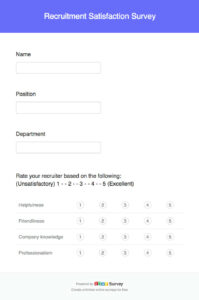If you’re a manager, you know that one of the most important things you can do to keep your team happy and productive is to have a clear and fair time off request policy. This policy should outline the types of time off that employees are eligible for, the process for requesting time off, and the approval process. Having a well-written time off request policy template can help you ensure that your team members are able to take the time off they need, while also ensuring that the business’s needs are met.
Here are a few things to consider when creating your own time off request policy template:
- The types of time off that employees are eligible for.
- The process for requesting time off.
- The approval process.
- The consequences for not following the policy.
Types of Time Off
Vacation Time
The most common type of time off is vacation time. Vacation time is paid time off that employees can use for any reason they choose. The amount of vacation time that employees earn typically depends on their length of service with the company.
Vacation time can be used for a variety of purposes, such as taking a trip, visiting family, or simply relaxing at home.
Sick Leave
Sick leave is time off that employees can use when they are sick or injured. Sick leave is typically paid, but some companies may have a waiting period before employees are eligible for sick leave.
Sick leave can be used for a variety of purposes, such as recovering from an illness, caring for a sick family member, or attending medical appointments.
Bereavement Leave
Bereavement leave is time off that employees can use when they need to grieve the death of a loved one. Bereavement leave is typically paid, but some companies may have a limit on the amount of bereavement leave that employees can take.
Bereavement leave can be used for a variety of purposes, such as attending a funeral, making funeral arrangements, or simply taking time to grieve.
Requesting and Approving Time Off
Requesting Time Off
Employees should submit a time off request form to their supervisor or manager in advance. The request form should include the following information:
- The type of time off being requested.
- The dates of the requested time off.
- The reason for the requested time off.
- Contact information for the employee while they are out of the office.
Approving Time Off
Supervisors and managers should review time off requests and approve them if they are reasonable and do not conflict with the business’s needs. Supervisors and managers should also consider the employee’s performance and attendance when making their decision.
If a time off request is denied, the supervisor or manager should provide the employee with a written explanation of the denial.
Conclusion
A well-written time off request policy template can help you ensure that your team members are able to take the time off they need, while also ensuring that the business’s needs are met. When creating your own time off request policy template, be sure to consider the types of time off that employees are eligible for, the process for requesting time off, the approval process, and the consequences for not following the policy.
By following these tips, you can create a time off request policy template that is fair and effective.
FAQs
What is a time off request policy template?
A time off request policy template is a document that outlines the types of time off that employees are eligible for, the process for requesting time off, and the approval process.
What are the benefits of having a time off request policy template?
Having a time off request policy template can help you ensure that your team members are able to take the time off they need, while also ensuring that the business’s needs are met.
What should be included in a time off request policy template?
A time off request policy template should include the following information:
- The types of time off that employees are eligible for.
- The process for requesting time off.
- The approval process.
- The consequences for not following the policy.
